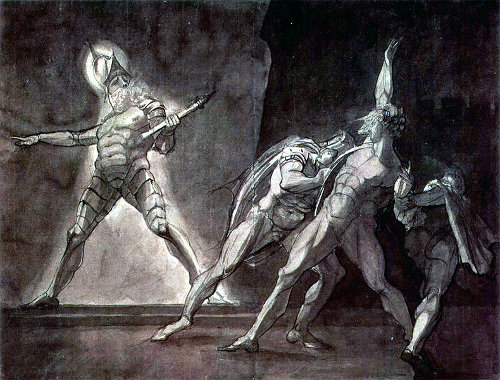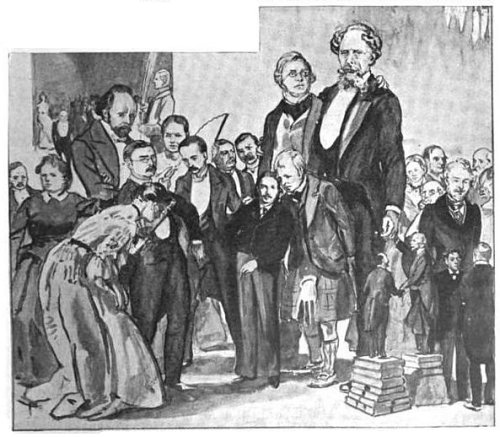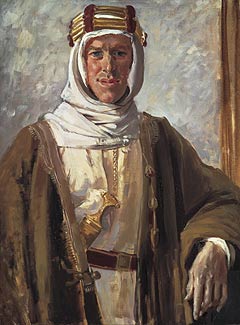For years a secret shame destroyed my peace–
I’d not read Eliot, Auden or MacNeice.
But then I had a thought that brought me hope–
Neither had Chaucer, Shakespeare, Milton, Pope.
— Justin Richardson, Punch, 1952
For years a secret shame destroyed my peace–
I’d not read Eliot, Auden or MacNeice.
But then I had a thought that brought me hope–
Neither had Chaucer, Shakespeare, Milton, Pope.
— Justin Richardson, Punch, 1952
Story magazine nearly foundered for a lack of Ws. The publishers, Whit Burnett and Martha Foley, lived on Majorca, and their Spanish printer’s character set could not accommodate their English prose.
They bought some supplementary Ws from a Madrid foundry, but the new type was distractingly sharp on the page. So the printer advised them to “make those new letters old.”
“We sandpapered those Ws,” wrote Foley, “we stamped on them, we hammered them and hurled them around to give them in an hour all the wear and tear the printer’s other type had endured for many years. We finally subdued them so that they lost most of their prominence. But I have been W-conscious ever since.”
In the early 1980s Doris Lessing published two novels under a pseudonym. “I wanted to highlight that whole dreadful process in book publishing that ‘nothing succeeds like success,'” she told the New York Times. “If the books had come out in my name, they would have sold a lot of copies and reviewers would have said, ‘Oh, Doris Lessing, how wonderful.'”
It appears her concerns were justified. Diary of a Good Neighbor was rejected by Lessing’s regular U.K. publisher as “not commercially viable”; another house said it was “too depressing to publish.” When it did appear and no one recognized her work, she wrote a second novel, If the Old Could, under the same pseudonym. Each book received promotion typical for a novel by an unknown author, garnered few reviews, and sold only a few thousand copies.
“Some of the so-called experts on my work, people who I know looked at the novels by Jane Somers, didn’t recognize it was me,” Lessing said. “And many of the readers’ reports to the publishers were very patronizing and very nasty. … What happens mostly is that an immense amount of space will be given to not very good books by established writers.”
After leaving a Cambridge party, H.G. Wells realized he had picked up the wrong hat. The owner’s name was inside the brim, but the hat fit well, and Wells liked it. So he sent a note instead:
“I stole your hat; I like your hat; I shall keep your hat. Whenever I look inside it I shall think of you and your excellent sherry and of the town of Cambridge. I take off your hat to you.”
Letter from Mark Twain to William Dean Howells, London, July 3, 1899:
Dear Howells,— … I’ve a lot of things to write you, but it’s no use — I can’t get time for anything these days. I must break off and write a postscript to Canon Wilberforce before I go to bed. This afternoon he left a luncheon-party half an hour ahead of the rest, and carried off my hat (which has Mark Twain in a big hand written in it). When the rest of us came out there was but one hat that would go on my head — it fitted exactly, too. So wore it away. It had no name in it, but the Canon was the only man who was absent. I wrote him a note at 8 p.m.; saying that for four hours I had not been able to take anything that did not belong to me, nor stretch a fact beyond the frontiers of truth, and my family were getting alarmed. Could he explain my trouble? And now at 8.30 p.m. comes a note from him to say that all the afternoon he has been exhibiting a wonder-compelling mental vivacity and grace of expression, etc., etc., and have I missed a hat? Our letters have crossed.
Yours ever,
Mark.

In 1889 Fredericka Beardsley Gilchrist advanced a theory that the entire meaning of Hamlet has been confused because of a typographical error. In Act I, Scene V, the ghost reveals to Hamlet his mother’s adultery and his father’s murder. Hamlet responds:
O all you host of heaven! O earth! what else?
And shall I couple hell? O fie!
Gilchrist maintains that the second line should read:
And shall I couple? Hell! O fie!
In other words, “And after this shall I also marry? No!” He gives up his love for Ophelia, and the rest of the play is the story of “an unhappy lover.”
For Gilchrist this is “the one key that unlocks every difficulty in the play”: “For nearly three hundred years it has been possible to misunderstand, not special passages only, but the fundamental intention of the play; during that time no satisfactory explanation of all its obscurities has been advanced. I believe this theory explains them; and this belief, based on careful study and comparison, ought to excuse the seeming vanity and presumption of the preceding statement.”
Decide for yourself — her book is here.
Paul Dirac, the British theoretical physicist, has a reputation for being reserved and speaking little. He read E.M. Forster’s A Passage to India, and commented favorably on it. Someone in Cambridge thought the two great men ought to meet. J.G. Crowther recalls that this was arranged. The two men observed each other in long, silent respect. Presently Dirac asked, ‘What happened in the cave?’ ‘I don’t know,’ said Forster, which concluded their conversation.
— Bulletin of the Atomic Scientists, March 1971
John Warburton (1682–1759) collected drama manuscripts during a fruitful period in English literature. Unfortunately, he’s remembered chiefly for his carelessness — he left a pile of 50 manuscripts in his kitchen and returned months later to find that his cook had destroyed nearly all of them in lighting fires and lining pie pans.
Among the losses were plays by Massinger, Ford, Dekker, Greene, Davenant, Tourneur, Rowley, Chapman, Glapthorne, and Middleton — and three by William Shakespeare.
See A Poor Review and A Loss for Words.

Comparative popularity of British novelists at the end of the 19th century, from Strand, August 1906. The giant is Dickens, followed by Thackeray and the now largely forgotten Hall Caine. Lesser mortals, left to right, are Thomas Hardy, Mary Elizabeth Braddon, Marie Corelli, Rudyard Kipling, Mary Augusta Ward, J.M. Barrie, Arthur Conan Doyle, Stanley Weyman, Robert Louis Stevenson, Walter Scott, Henry James, Charlotte Brontë, George Meredith, Anthony Trollope, Charles Kingsley, Edward Bulwer-Lytton, Israel Zangwill, Charles Reade, and E.F. Benson.
“It should be pointed out that this diagram does not pretend to apportion the degree of contemporary literary reputations. It only shows what kind of fiction has been most read by the masses during the past twenty years.”

In 1922, T.E. Lawrence joined the Royal Air Force under the alias John Hume Ross, AC2 No. 352087. Exposed by the Daily Express, he joined the Tank Corps as Private Thomas Edward Shaw, No. 7875698. Eventually he returned to the RAF as Aircraftsman T.E. Shaw, No. 338171. His account of life in the air force was published under the byline “352087 A/C Ross.”
Noël Coward once began a letter to him, “Dear 338171 (May I call you 338?)”
“If I had no duties, and no reference to futurity, I would spend my life driving briskly in a post-chaise with a pretty woman; but she should be one who could understand me, and would add something to the conversation.” — Samuel Johnson
“I suppose that even the most pleasurable of imaginable occupations, that of batting baseballs through the windows of the RCA Building, would pall a little as the days ran on.” — James Thurber
Isaac Asimov, a claustrophile, used to envy the keepers of New York subway newsstands, “for I imagined they could board it up whenever they wanted to, put the light on, lie on a cot at the bottom, and read magazines. I used to fantasize doing so, with the warm rumble of the subway trains intermittently passing.”